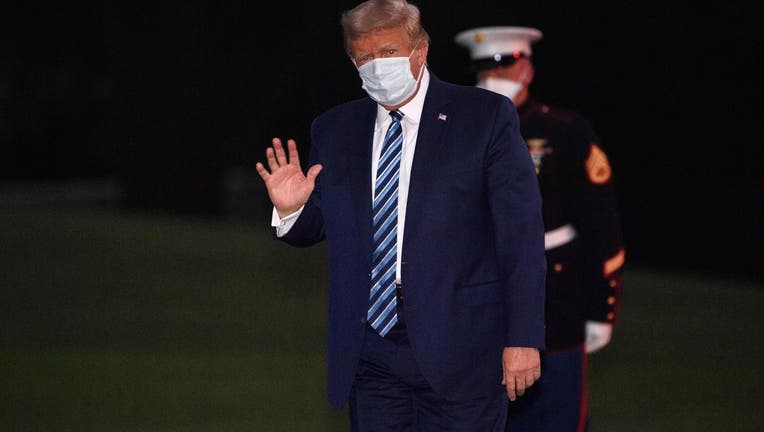President Trump says he might hold weekend rallies in Florida, Pennsylvania

US President Donald Trump waves as he arrives at the White House wearing a facemask upon his return from Walter Reed Medical Center, where he underwent treatment for Covid-19, in Washington, DC, on October 5, 2020. (Photo by NICHOLAS KAMM / AFP) (Pho
LAKE MARY, Fla. - Just a week after his hospitalization for the coronavirus, President Donald Trump appears to be ready to return to the campaign trail.
During an interview with Fox News' Sean Hannity on Thursday night, Trump announced that he is in “great shape” and will likely take a COVID-19 test on Friday. He said he wants to return to his rallies after his physician said it was safe for him to make public appearances.
White House physician Dr. Sean Conley sent out a memorandum on Thursday stating that President Trump will be able to return to public engagements this weekend.
“I think I’m going to try doing a rally on Saturday night if we have enough time to put it together,” Trump told Hannity. "But we want to do a rally, probably in Florida, on Saturday night. Might come back and do one in Pennsylvania the following night."
RELATED: President Trump posts video on coronavirus treatment
The president revealed that he had tested positive for the coronavirus last week He was then taken to Walter Reed National Military Medical Center on Oct. 2 but returned to the White House on Oct. 5 after receiving aggressive treatment including an antibody cocktail.
The president has not been seen in public — other than in White House-produced videos — since his Monday return from the military hospital where he received experimental treatments for the virus.
RELATED: White House doctor expects Trump to ‘safely return’ to public engagements Saturday
Trump told Fox Business' Maria Bartiromo Thursday morning he didn't think he was contagious "at all" any more.
The Centers for Disease Control says people “with mild to moderate COVID-19 remain infectious no longer than 10 days after symptom onset. People with more severe symptoms can remain infectious for longer, it says.
The Associated Press contributed to this story.

